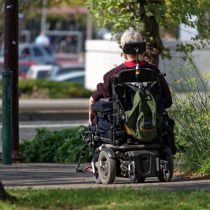
Different subjects are pending in our country regarding the creation of an inclusive public space. Although there has been strong progress in ending discrimination against disabled people, there are still problems in the development of spaces that have the essential characteristics for anyone to access it.
During the last time, the measure was created that requires the filing of an accessibility file in the new buildings. This standard began to govern since 2016 with the aim of creating a change in the real possibility of accessing and circulating in public spaces for people with some type of disability.
In addition, accessibility counseling has been incorporated within companies and universities to help create an inclusive environment. On the other hand, the labour inclusion law was also a major step forward in developing inclusion programs.
However, there are still many challenges at the country level on the issue. Pamela Prett, director and founder of Accessible City stated that “the first need is the improvement of accessible pedestrian paths and crossings, which involves the quality of life and safety of all pedestrians. Accessible routes need to be added to ensure travel
equitable for all.”
To achieve this, Prett noted that the proposal for municipalities is to make sense of urgency to requests from people with disabilities when requesting arrangements and solutions for their daily life itineraries. In addition, it indicated that this was a very effective method, as it directly benefited those who required it in the first instance.
In addition to this, another priority axis is to continue advancing accessible public transport and to incorporate, at the academic level, knowledge about a universal design that incorporates the demands of all people.
Loreto López, founder of Nouveau Arquitectura, said that the main outstanding topics in the field of inclusion are to invest resources in strengthening existing programs, to ensure that laws are followed, to give space for participation to people with disabilities when designing cities in addition to “considering this issue in the drafting of the new Constitution, where the importance of inclusion and accessibility is embodied , so that it is based on Magna Carta and not just the will of some.”
It also emphasized the need to generate spaces for conversation and policy because it is the right of persons with disabilities to participate on an equal footing in society, to be able to travel public spaces and buildings without barriers, continuously and safely and to eliminate social stigmas due to knowledge on an issue that is often ignored or unvisibilized.
Pending government issues
Pamela Prett indicated that since the first regulation that was introduced in 1995, the country has not been able to establish a development plan in terms of accessibility. “To date, all deadlines for the adequacy of spaces and buildings of use or attention to the public have expired. It is an issue that must be addressed as a common policy independent of the government on duty,” he said.
In addition, it noted that the Senadis had convened a team to structure a permanent entity of accessible development as an independent and stable mechanism over time in order to continue accessibility policies in all orders.





